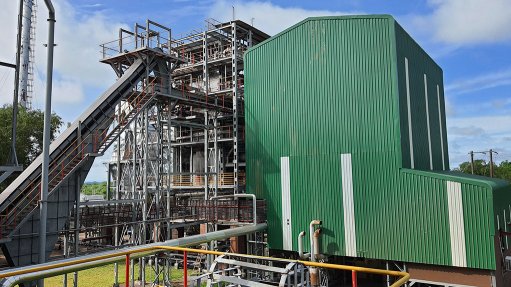
FULL STEAM AHEAD The sugar industry requires capital funding to unlock its full potential
While the sugar industry has the potential for major growth, the continued lack of investment limits the socioeconomic impact the industry can make, says independent engineering consultancy Sugartech principal consultant Wayne Jayes.
“Access to capital funding for sugar projects to establish new sugar operations, as well as expanding existing projects, has been a challenging trend in the sugar industries of several African countries. Investors are often cautious and slow to disburse funds.”
While investors are sometimes cautious with good reason, it is often with excessive caution.
Sugar estates in Africa tend to be in remote places, often characterised by poor transport networks, such as roads being in a bad condition and nonexistent rail links, as well as airports being remote.
The estates are generally located in these areas because the soil, climate and water supply are suitable for the cultivation of sugarcane.
However, it is difficult to attract skilled staff to work at these estates because of the location and lack of transport.
“The era of sugar companies providing schools, churches and recreational facilities for employees at sugar factories has passed, and without these facilities, people are not attracted to work at these places,” says Jayes.
If capital funding was more easily available, sugar estates could invest in community facilities and infrastructure when they build or expand sugar estates, consequently attracting skilled employees.
Through the success of the projects, sugar estates could expand further and secure more investment, but such estates need to secure an initial investment to start such a cycle, outlines Jayes.
Meanwhile, he highlights that the sugar industry has traditionally been an industry in which cooperation among the various companies and sectors was common.
“The culture of naturally feeling free to cooperate and share ideas across companies and industries is the best method of collaboration to the mutual benefit of all players,” explains Jayes.
Sugar estates in Africa have benefited significantly from the skills and expertise that the South African sugar industry has built over the past 100 years.
This includes institutions such as the Sugar Milling Research Institute, the SA Sugarcane Research Institute and the South African Sugar Technologists’ Association.
Moreover, sugar-procuring companies, such as Illovo Sugar, Tongaat-Hulett Sugar and RCL Foods, as well as smaller, independent and cooperative South African sugar companies, have cultivated and developed skills and experience which have been used at sugar estates in Africa to their benefit.
Jayes concludes that sugar production technology worldwide is also mature and well established, with almost all the technology in the public domain and not protected by patent; this should be beneficial for any initiative that aims to drive investment in the sugar industry.